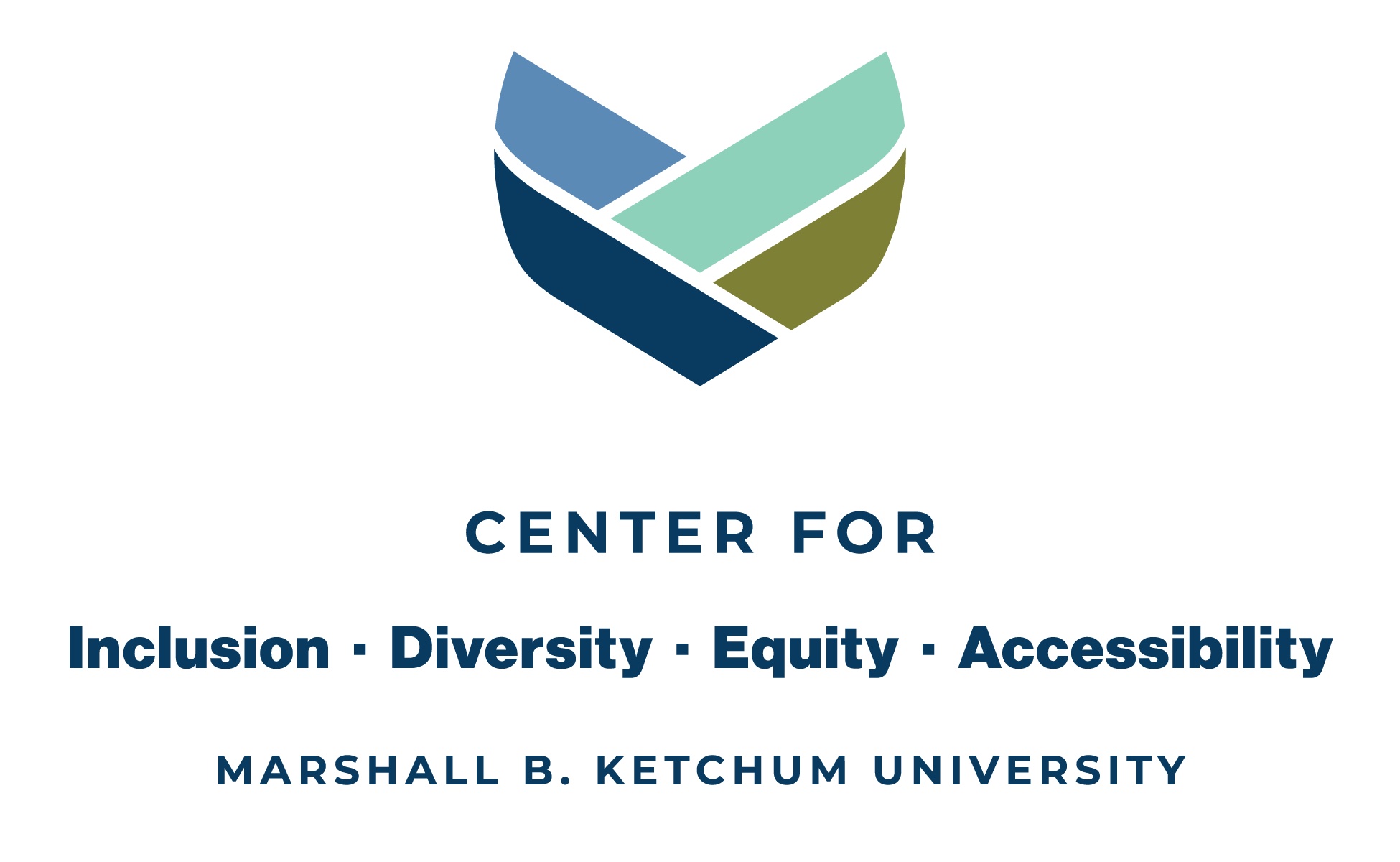Marshall B. Ketchum University is pleased to announce the founding of the Inclusion, Equity, Diversity, and Accessibility (IDEA) Center, a campus hub whose mission is to instill and preserve core values that promote a vision for the University as a place that truly welcomes, accommodates, and empowers individuals from every demographic. The IDEA Center, which is set to officially commence its work in the Fall of 2022, grew out of the decision by MBKU to put a more deliberate focus on efforts to ensure MBKU graduates are skillfully prepared to provide health care in a diverse society. Part of this mission is to offer education that promotes understanding of differences, affirmation of identities, and an understanding of the community’s role in reducing health disparities. This starts with individual learners and institutional culture by ensuring that the learning and working environment is diverse, making sure the institution is equitable in all the ways it functions, and affirming MBKU as a place of inclusion, modeling the way health care professionals and institutions can create healing spaces of belonging in health care settings.
That decision resulted in the appointment of Melissa Contreras, OD, MPH, FAAO as MBKU’s Assistant Vice President of Diversity, Equity, and Inclusion (DEI), to lead committees comprised of stakeholders across campus to explore and implement improvements and initiatives related to DEI. As the importance of this work came into focus, it became clear that the pursuit of these core values should become a more permanent part of the campus, and the IDEA Center was born. “We found it difficult to attach these incredibly crucial values to just one person, or to a committee whose members may rotate on and off,” says Dr. Contreras. “So we had the idea of creating a center, a lasting entity whose charge is to prioritize these topics and to serve as a central hub of resources and support, and as a solid home base for DEI.”
All of this evolves MBKU’s long-held institutional values. “Our ultimate mission is making sure we can improve the health of the population,” says Dr. Contreras. “By establishing this Center, we are showing that we prioritize the details of how that education gets done. We’re prioritizing the idea that students do need to have a foundation of cultural competency and cultural humility in their education. But it’s not just about the didactic education, it’s also about the experiences they have on campus. They get to better understand themselves, their colleagues and their patients, so that when they walk across that stage at graduation and go on to be optometrists, PAs, and pharmacists, they are certain of their sense of self and their professional identities, and they’re competent and flexible in serving diverse patient populations, so they can provide a safe, healing, caring environment for each and every patient that comes to them.”
While the outcomes of innovations such as these always reverberate in the larger community with time, the IDEA Center has started its work at home, building from the efforts of the DEI Committee in supporting MBKU students, faculty, staff, and alumni. The Center will continue previously-established efforts such as supporting the first employee multicultural club, hosting speakers and professional development opportunities, and supporting student clubs when they hold campus events which both celebrate and share culturally-significant traditions and values. Employees can access resources that help them address the needs of their departments or clinics related to DEI, design and conduct trainings, and implement changes to policy or curriculum when appropriate. The IDEA Center is also a resource for individuals at the administrative level, aiding campus leaders with strategic planning in their objective of embracing equity in MBKU’s approach to students, employees, and clinical patients.
Campus opportunities for students to interact with and learn from each other are of course at the heart of MBKU’s interdisciplinary approach to education, and the establishment of the IDEA Center very simply creates more of these opportunities. This fall Dr. Contreras will co-teach an interprofessional course designed for all three programs called “Principles of DEI in Health Care,” which will be MBKU’s first-ever course specifically focused on the foundational principles of DEI as they relate to health care professions, the patients’ experiences, and achieving health equity overall. Special courses like this, in addition to creating an integrated curriculum throughout the programs, and co-curricular opportunities like documentary film screenings, not only exposes students to these issues, but they also bring students together. “We want to create more opportunities for our students and our community to actually see one another and interact with one another,” says Dr. Contreras. “After two years of remote work due to COVID, it’s good for us and our students to get to know each other on a personal level and to see the humanity in one another.”
The IDEA Center will provide a lasting, institutional framework for exactly that: understanding faculty, staff, students, and patients on a human level, and developing equitable ways to work, learn and improve health across communities. It’s a foundational pillar of MBKU’s mission and crucial to one of its most important aims. As Dr. Contreras puts it succinctly: “We want to continue making sure that MBKU is a place that people can truly call home.”
To learn more, visit ketchum.edu/IDEA

